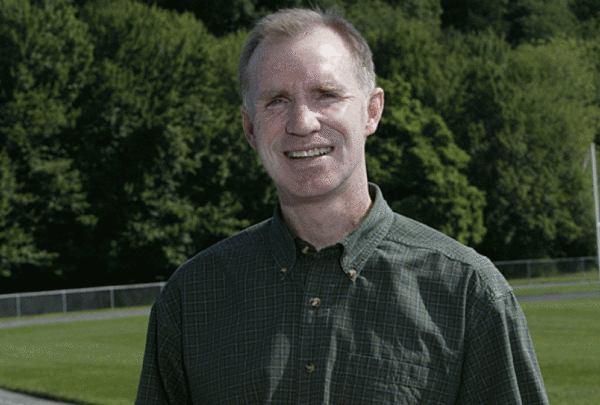Major League Baseball made history this past weekend. For the first time ever, an MLB game was played in Europe. The New York Yankees flexed some serious offensive muscle against the Boston Red Sox in a two-game series played in London. The Yankees won both games by lighting up the scoreboard to the tune of 17-13 and 12-8. The 50 combined runs mark the most runs ever scored in two consecutive games in the Yankees-Red Sox rivalry.

The “MLB London Series” generated plenty of buzz. Prince Harry and Meghan Markle, the Duke and Duchess of Sussex, were on the field for Saturday’s introductions. It isn’t every day that British royalty is on hand to check out a baseball game. The uniqueness of the series made it feel like an event. At the very least it helped break up the monotony of baseball games typically played without such a backdrop.
Not everybody viewed it the same way I did though. Some fans moaned about two home games being taken away from the Red Sox. Others complained about the 385-foot short porch in center field, or the abnormally high-scoring games.
So what? At least the critics are invested enough to complain in the first place. We generally avoid complaining about things we don’t care about. I don’t whine about what time the Bachelorette airs because I don’t watch the freakin’ show. That’s normally how it works.
The fact that MLB did something out of the ordinary to create buzz — both good and bad — is what it’s all about. This concept applies directly to sports radio as well. As a host, you not only need to differentiate yourself from the competition, you need to differentiate yourself from yourself. That’s exactly what MLB just did. They played a game in Europe for the first time ever. It benefitted the league to do something it had never done before.
Sports radio hosts don’t need to do uncharacteristic things each show. MLB doesn’t look to do things out of character every single day. Just keep it in mind and look for opportunities.
Maybe it’s a bit you generally wouldn’t do, or a guest you typically wouldn’t interview. Trying things outside your normal pattern will keep the audience guessing and help to create buzz. My friend from FOX Sports Radio, Tomm Looney, always used to say, “Take a quarter turn from the norm.” I think it makes a lot of sense to take a quarter turn from the competition as well as the way you typically do things yourself.
I can anticipate some pushback on these thoughts. “Why change things if you’re successful, Brian?”
Look, Pepsi introduced three new flavors this spring — Pepsi Berry, Lime, and Mango. Coke has more flavors than just Coke. Those companies strive to evolve. They don’t just stick with their original flavors and say, “Well, let’s just ride with this until it doesn’t work anymore.”
Successful companies evolve and successful hosts do the same. Evolving is a key ingredient in music as well. Metallica went completely outside their heavy metal norm when they released “Nothing Else Matters” way back in 1991. You might love or hate the song. It doesn’t matter in this instance. What matters is that the song got a ton of attention in large part because it was so different.

I’d also compare sports radio hosts to athletes in a way. The more skills that are developed, the more successful you become. Dwight Howard was a great defender but never reached his potential on the offensive end. When he couldn’t rely on athleticism and power as much, his game eroded.
LeBron James could be content resembling a freight train while attacking the basket. Steph Curry could be content as the greatest shooter ever. They, among many other great players, keep working to expand their game. The more techniques they master — floaters, post-up moves, lefty finishes, crossovers, hesitation dribbles, footwork — the more deadly they become.
Don’t be the Dwight Howard of radio. If you rely solely on one or two great skills, you will never expand your game to its peak. Whatever style you have — hot-take host, recall host, life-centric host, funny host — don’t be dependent on your greatest skill. Push the boundaries and look to evolve. It’ll take time. Steph Curry didn’t master the art of dribbling two basketballs at the same time on his first try. I doubt a host will master a foreign radio skill immediately either. But you’ll be better off in the long run if you just stick with it.
The London Series is a winning idea for MLB. I watched healthy chunks of both games mainly because it was such a shift from baseball’s norm. Even if I hated the end result, I would’ve still seen the value in doing things differently to generate attention. MLB shouldn’t stop here. They should push the limits.
I would make the movie Field of Dreams come to life by playing an MLB game in a cornfield. If that sounds silly to you — why? The game would get a ton of attention. It would spark conversations. The nostalgia would certainly be present. Kevin Costner could even throw out the first pitch and instead of yelling, “Gentlemen, start your engines,” he could whisper, “If you build it, he will come.”

Part of making baseball great again is making it relevant again. Getting people back in the habit of watching games and going to the ballpark involves doing things out of the ordinary.
NEWSTALK 1010 Toronto program director Mike Bendixen spoke about this concept at a radio convention once. He made a great point about telling his staff to do something different once a week. Take a different path on the drive home. Try a new restaurant. It makes all the sense in the world. If you host shows the same way, eat the same food, wear the same clothes, and watch the same shows — guess what you’ll be?
The same.
Brian Noe is a columnist for BSM and an on-air host heard nationwide on FOX Sports Radio’s Countdown To Kickoff. Previous roles include stops in Portland, OR, Albany, NY and Fresno, CA. You can follow him on Twitter @TheNoeShow or email him at bnoe@premierenetworks.com.







